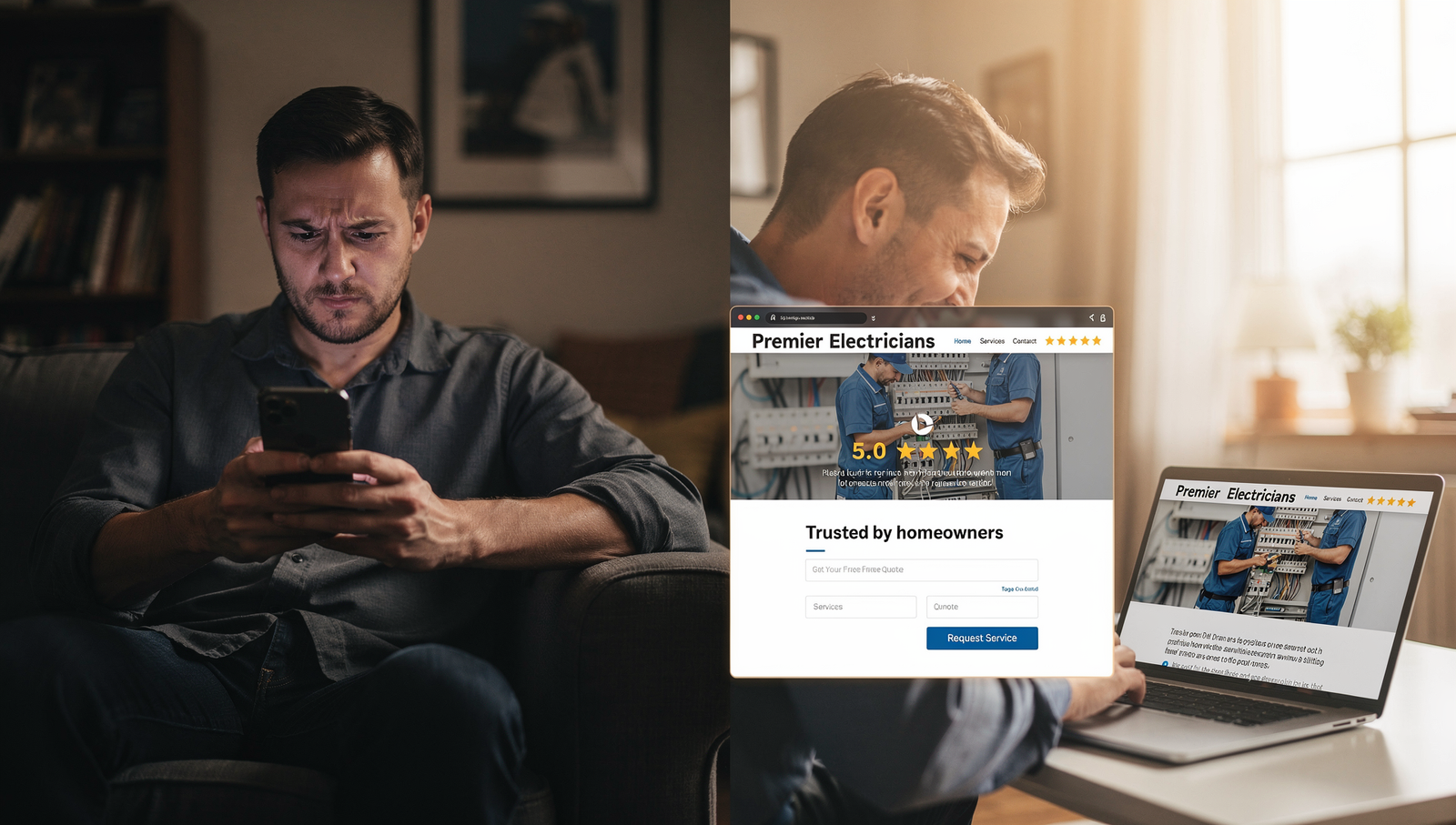9 Ways Realtors Help Clients Save on Closing Costs

Want More Clients Fast?
Steal This Website Rescue Kit to Get More Clients, More Calls, and More Sales on Autopilot
When clients ask about one of the most confusing parts of a transaction, they often say, “What are all these closing costs, and do we have to pay them all?” As a realtor, knowing how to negotiate closing costs real estate is one of the most powerful skills you can bring to the table. Buyers love when you save them money, and sellers appreciate when you keep deals alive by bridging the gap. Mastering this topic helps you stand out as the professional who truly delivers value.
Why Learning How to Negotiate Closing Costs Real Estate Matters
Closing costs typically range from 2% to 5% of the loan amount. On a $350,000 home, that’s anywhere from $7,000 to $17,500. For many clients, that extra amount can feel overwhelming, especially first-time buyers who already stretched to cover down payments.
Realtors who understand how to explain, itemize, and negotiate these costs can calm fears, build trust, and keep deals moving. In today’s competitive market, this knowledge also positions you as a deal-saver.
Breaking Down Typical Closing Costs
Before you can help clients negotiate, you need to clearly understand what’s on the table. Closing costs usually include:
Loan origination fees
Appraisal and inspection fees
Title search and title insurance
Escrow fees
Attorney fees (in some states)
Prepaid taxes and insurance
Recording fees
Explaining these to clients in plain English (instead of industry jargon) is a huge trust-builder. Instead of saying “prepaids and escrows,” try: “This covers the taxes and insurance you’ll need to set aside upfront.”
Strategies for Realtors: How to Negotiate Closing Costs Real Estate
Now let’s get practical. Here’s how you can guide both buyers and sellers through the art of closing cost negotiations.
1. For Buyers
Buyers often have the most to gain. Here’s how you can help them:
Ask for Seller Concessions
In many cases, sellers may agree to pay part of the buyer’s closing costs to keep the deal moving. Frame it as a win-win: the seller nets the same amount, but the buyer’s out-of-pocket costs drop.Negotiate Lender Credits
Buyers can often secure credits from lenders by agreeing to slightly higher interest rates. This is a great tool if short-term affordability matters more than long-term savings.Shop Around for Services
Appraisals, inspections, and even title companies sometimes vary in cost. Helping your client explore options demonstrates extra care.Use Market Conditions to Leverage
In a buyer’s market, you can push harder for concessions. In a seller’s market, you’ll need to get creative with lender credits and negotiation.
2. For Sellers
Many realtors overlook how important this is for sellers. Here’s how to frame it:
Preempt Buyer Requests
If you know your listing will need help moving, advise your sellers to offer closing cost assistance upfront. This can attract more offers.Focus on Net Proceeds
Sellers may resist concessions, but when you walk them through how their net doesn’t change dramatically, they often soften.Use Closing Costs as a Sweetener
If negotiations stall, offering to pay part of the buyer’s costs can tip the scales without lowering the sales price.
3. Knowing When to Push and When to Hold Back
Every deal has its rhythm. Sometimes it’s better to push hard, especially when inspections reveal costly issues. Other times, keeping the peace is the smarter play. Realtors who master this balance become trusted advisors rather than just salespeople.
Real-World Realtor Scenario
Imagine you’re helping a first-time buyer in a competitive market. They’re tight on cash and overwhelmed by a $12,000 closing cost estimate. Instead of letting panic sink the deal, you negotiate $6,000 in seller concessions and a $2,000 lender credit. The buyer only brings $4,000 to closing, and you’re the hero who made homeownership possible.
On the flip side, think of a seller who’s hesitant to pay any concessions. You walk them through comps and explain that offering $5,000 toward closing costs could bring in more buyers and faster offers. Two weeks later, they’re under contract at full price. That’s the power of negotiation.

Realtor Marketing Angle: Showcase Your Expertise
Here’s the kicker—knowing how to negotiate closing costs real estate isn’t just valuable at the table. It’s a marketing tool.
By writing blog posts, making short videos, or posting on social media about how you save clients thousands, you set yourself apart from other agents. People don’t want a realtor who just unlocks doors; they want someone who fights for their bottom line.
To build this kind of authority online, start using the Best Free Tools for Realtors to create and share content. Pair it with smart digital strategies from Facebook Ads vs Google Ads for Realtors, and you’ll have leads who already trust you before they even pick up the phone. For long-term growth, learn to manage your pipeline with the Top 5 Best CRMs for Realtors and boost your organic presence with insights from Real Estate SEO Best Practices.
Other helpful reads from Digital Dream Homes include How Realtors Can Dominate Google with Local SEO, Best IDX Plugins for WordPress, 10 Ways a High-End Website Helps You Close More Listings, and How to Capture Seller Leads with a Home Value Tool. Linking negotiation expertise with your online presence is how modern agents scale their business.
Conclusion
Mastering how to negotiate closing costs real estate is about more than saving clients money. It’s about demonstrating your expertise, building trust, and showing both buyers and sellers that you’re in their corner. Every dollar you save (or wisely position) builds your reputation as a dealmaker who adds real value.
Ready to position yourself as the go-to agent in your market? Book a free consultation with Digital Dream Homes today and let’s build a website that showcases your expertise and attracts more clients.
Matt Pieczarka
Want a Free Website Audit?
Fill out your information below and we will send you a personal screen share video of tips on how to make your actual website better!
See How Many Closings You're Losing to Zillow!
Click Here to Use our Calculator to See How Many Clients Zillow is Taking From You Per Year!
Some More Posts About Strategy and Growth…
- Marketing Plan For Small Business 2026 Every Owner Should Copy
- Benefits of Professional Website for Small Business: The Hidden Profits
- How to Get More Referrals for Small Local Business Fast
- Customer Retention Strategies Small Business Owners Never Hear About
- How Small Businesses Compete Online And Actually Win In 2026
- Blogging for Small Business Growth: 2026 Profit Multiplier
- Sales Funnel For Small Business Website That Prints Money
- What Is A Listicle And Why Your Website Desperately Needs One
- Strategic Website Design That Turns Small Business Clicks Into Clients
- The Simple Blueprint to Explosive Small Business Growth
9 Functional Medicine Website Designer Tips to Grow Faster
9 Functional Medicine Website Designer Tips to Grow Faster Watch the video to learn one psychological SEO trick to build more trust and get more leads from your website! Wan
7 Functional Medicine Website Design Moves That Get Patients
7 Functional Medicine Website Design Moves That Get Patients Watch the video to learn about the best layout to get more leads and patients guaranteed! Want More Clients Fast
11 Electrician Website Designers That Turn Clicks Into Calls
11 Electrician Website Designers That Turn Clicks Into Calls Watch the video to learn the best layout for best results! https://youtu.be/XaEbNPZxi0U?si=kT1Cru8S2SMJSPNx Want More C
11 Electrician Website Help Fixes That Turn Clicks Into Calls
11 Electrician Website Help Fixes That Turn Clicks Into Calls Watch the video to learn how to structure your website for the best return on investment! https://youtu.be/XaEbNPZxi0U
11 Electrician Web Design Company Questions to Ask
11 Electrician Web Design Company Questions to Ask Watch the video to learn the best website layout for the most lead conversions! https://youtu.be/XaEbNPZxi0U?si=SgxjOWdd7F6f4Mtg
13 Electrician Website Templates That Turn Clicks Into Paid Jobs
13 Electrician Website Templates That Turn Clicks Into Paid Jobs Watch the video to learn the best template layout for the best results! https://youtu.be/XaEbNPZxi0U?si=rGg1WlUWlmH
11 Electrician Website Services That Bring In More Calls
11 Electrician Website Services That Bring In More Calls Watch the video to learn the best website layout for the best results https://youtu.be/XaEbNPZxi0U?si=rGg1WlUWlmHTg73v Want
12 Electrician Website Upgrades That Win More Jobs
12 Electrician Website Upgrades That Win More Jobs Watch the video to learn the best website layout to get the most bang for your buck! https://youtu.be/XaEbNPZxi0U?si=uFqsnSFvenQ1
5 Electrician Website Design Company Upgrades That Win Jobs
5 Electrician Website Design Company Upgrades That Win Jobs Electrician website design that earns trust fast and drives more calls. See the must-have upgrades and book more jobs. h









